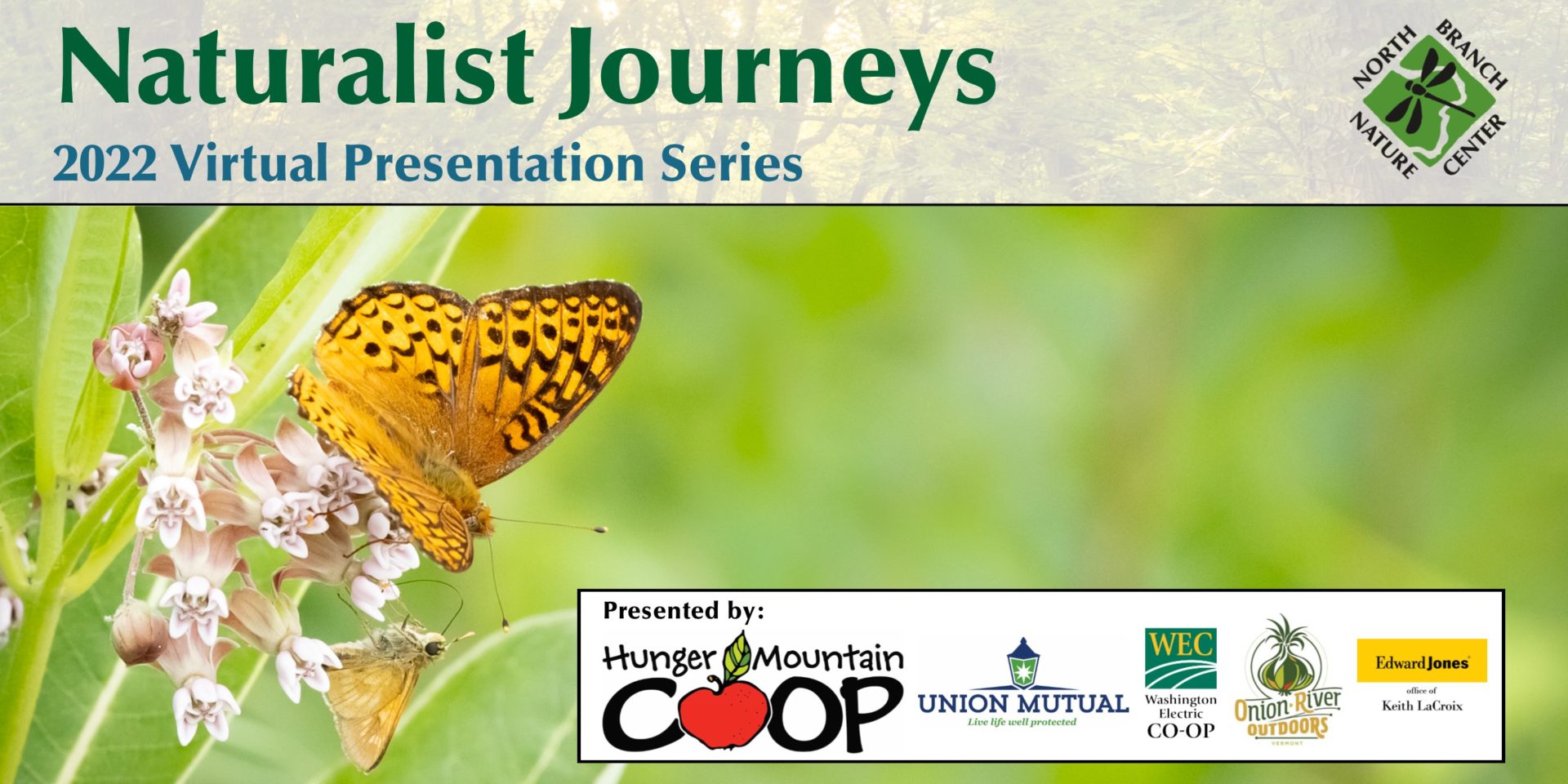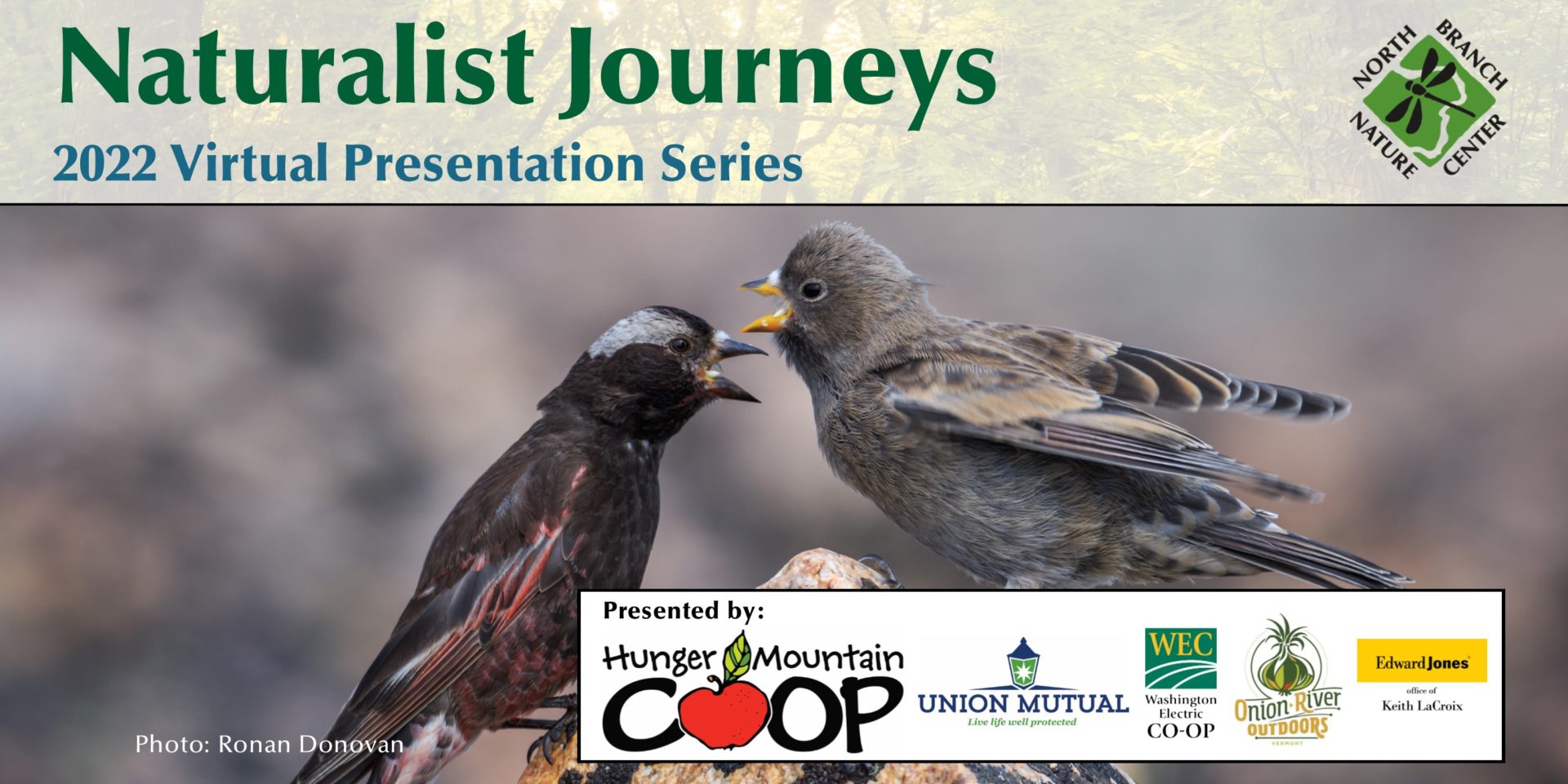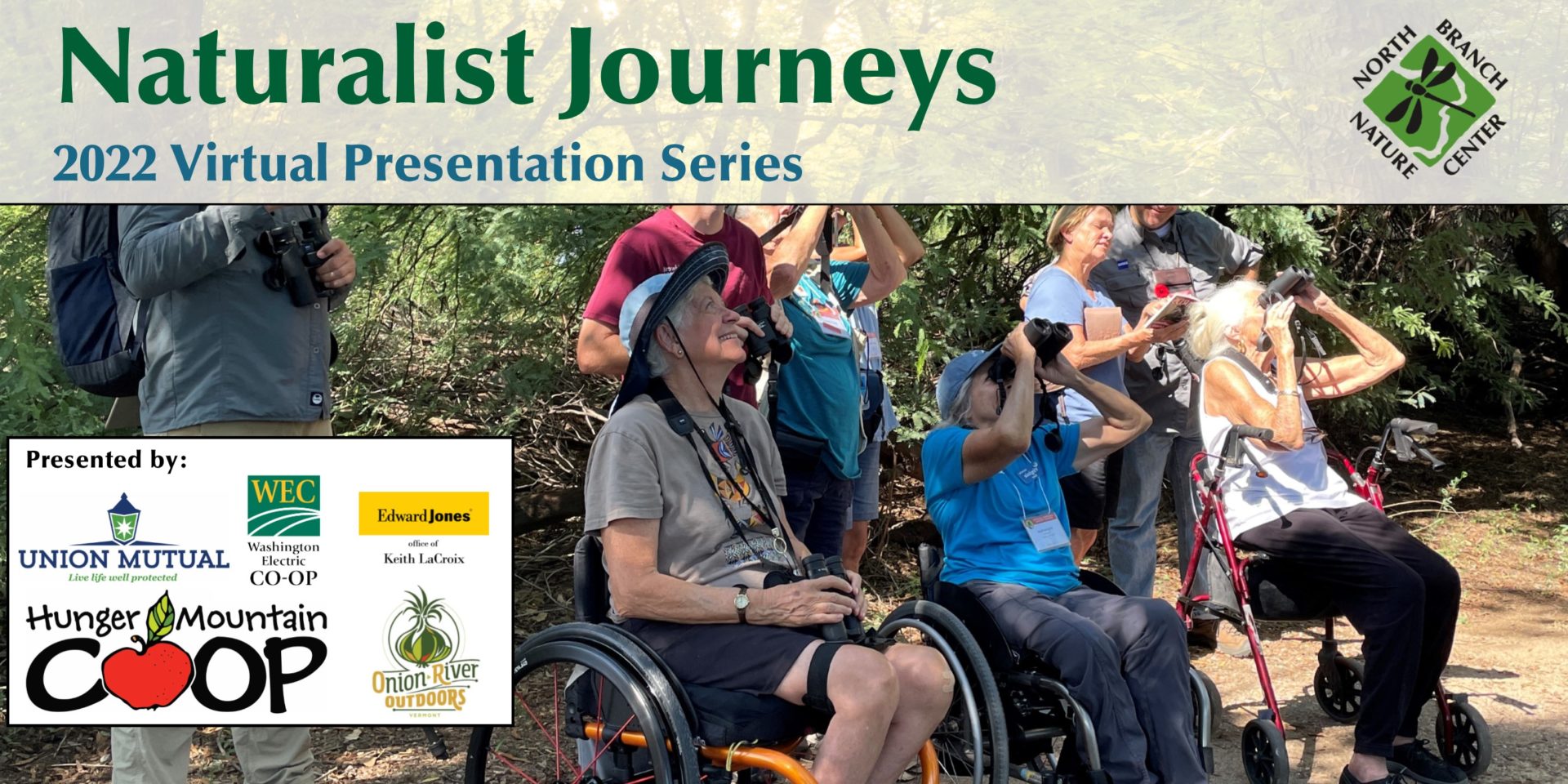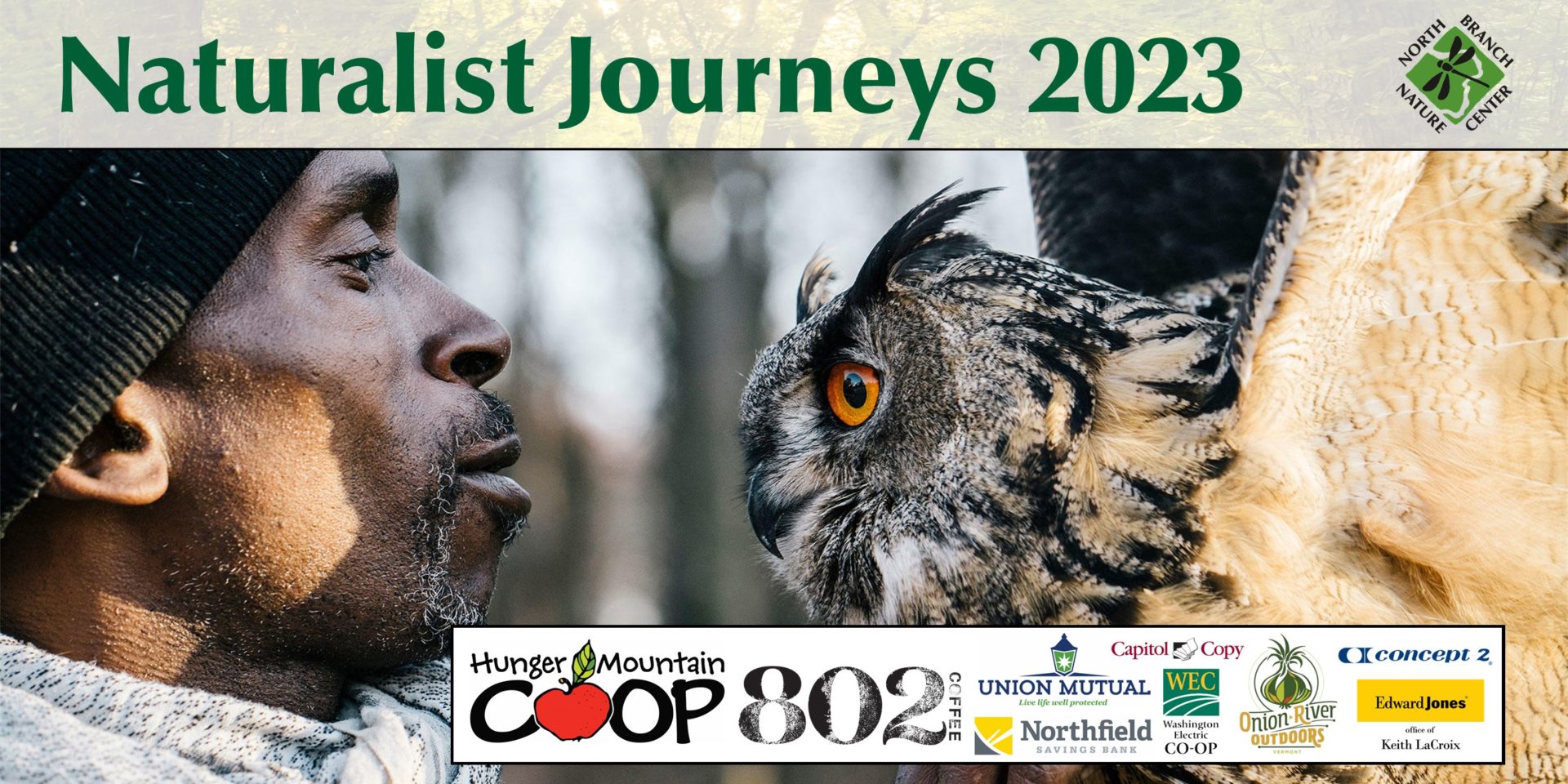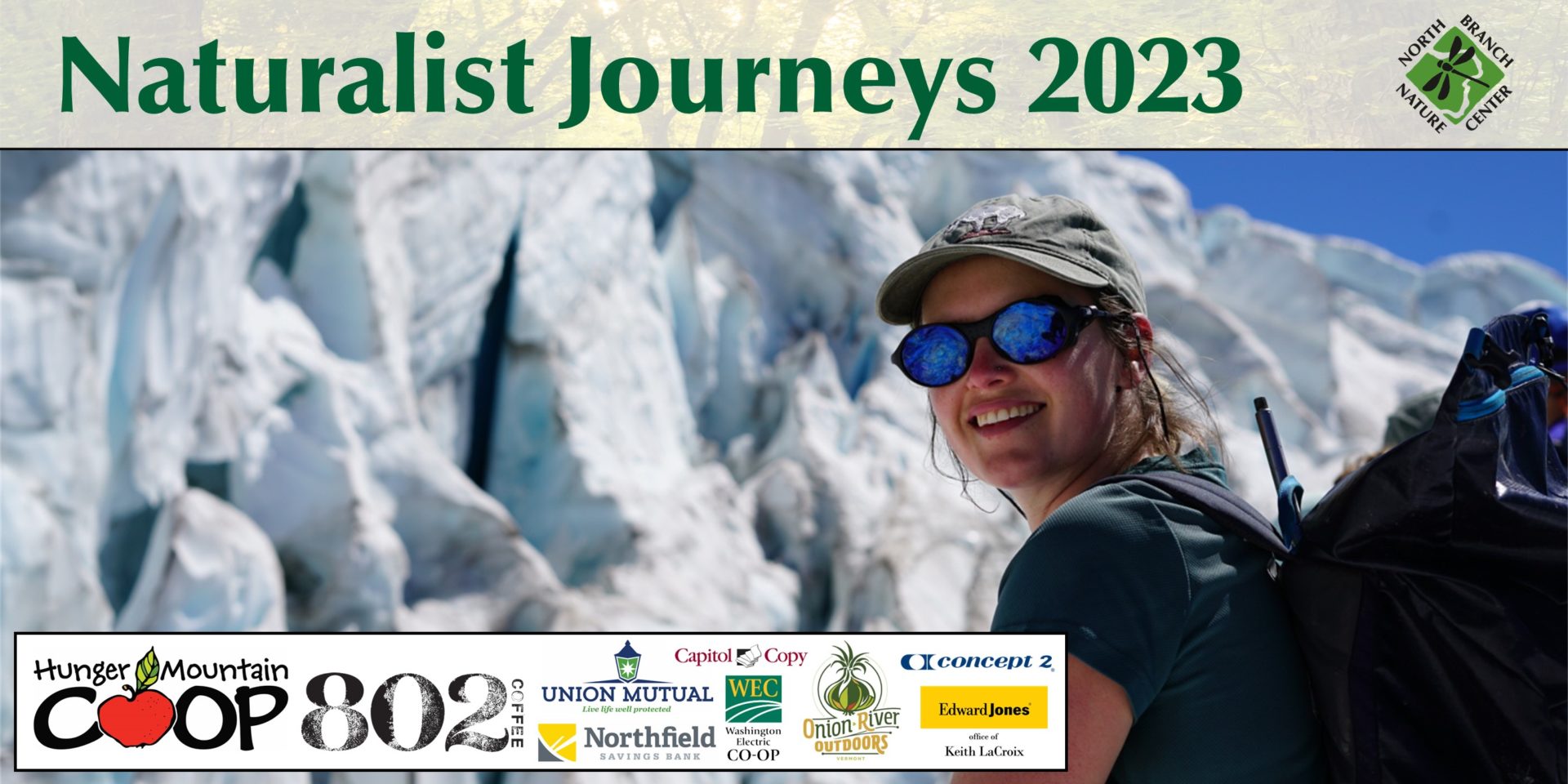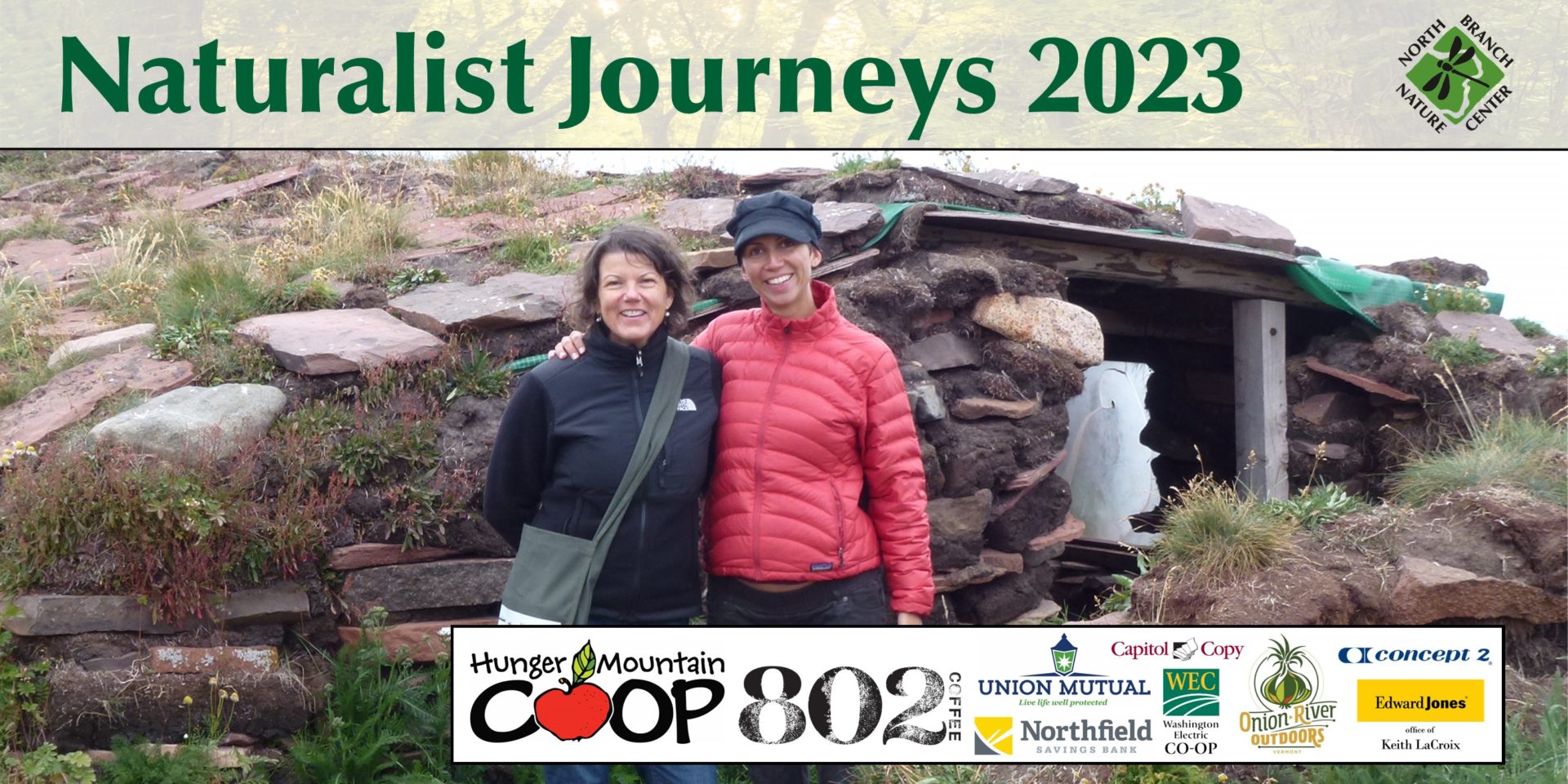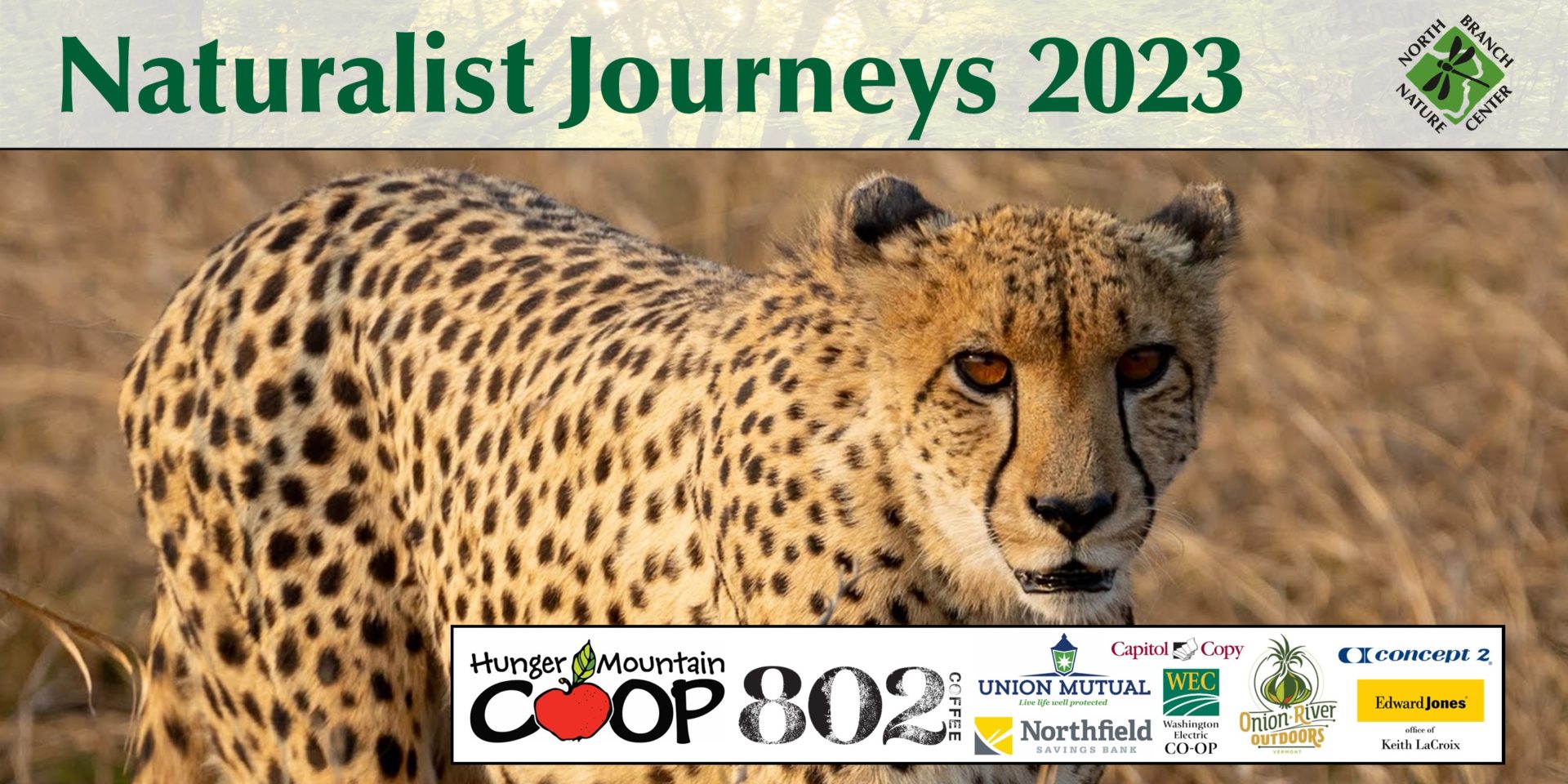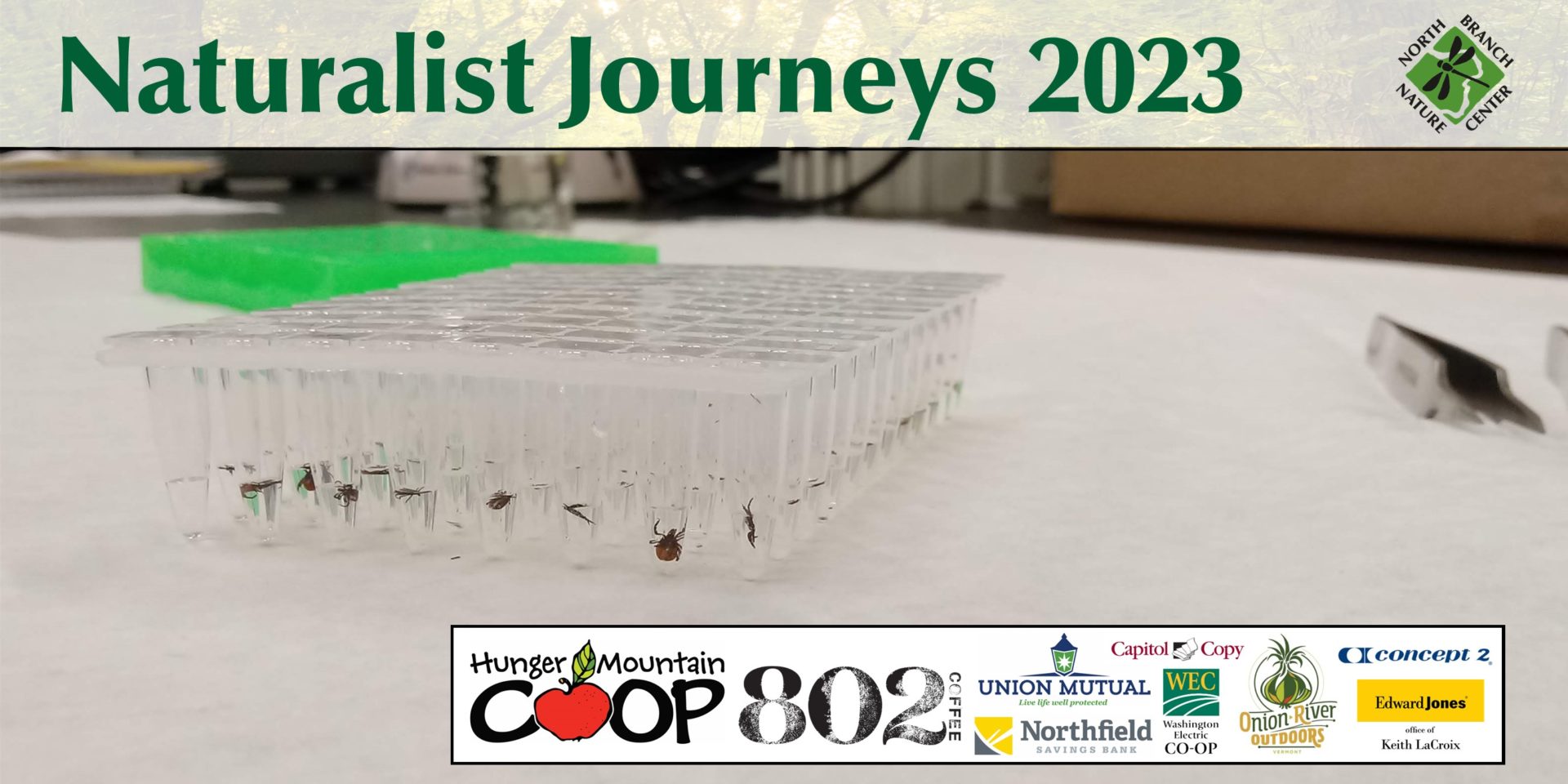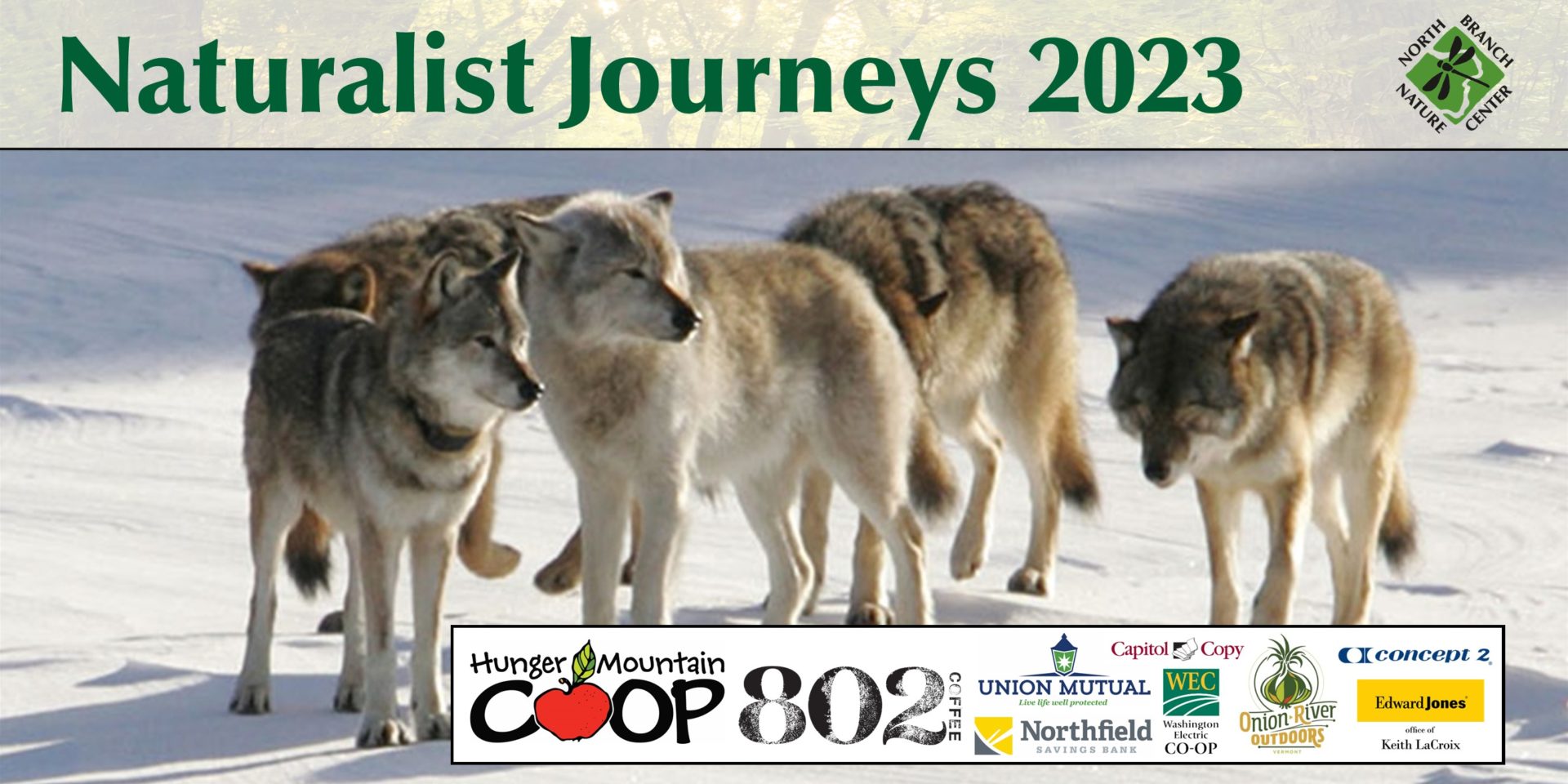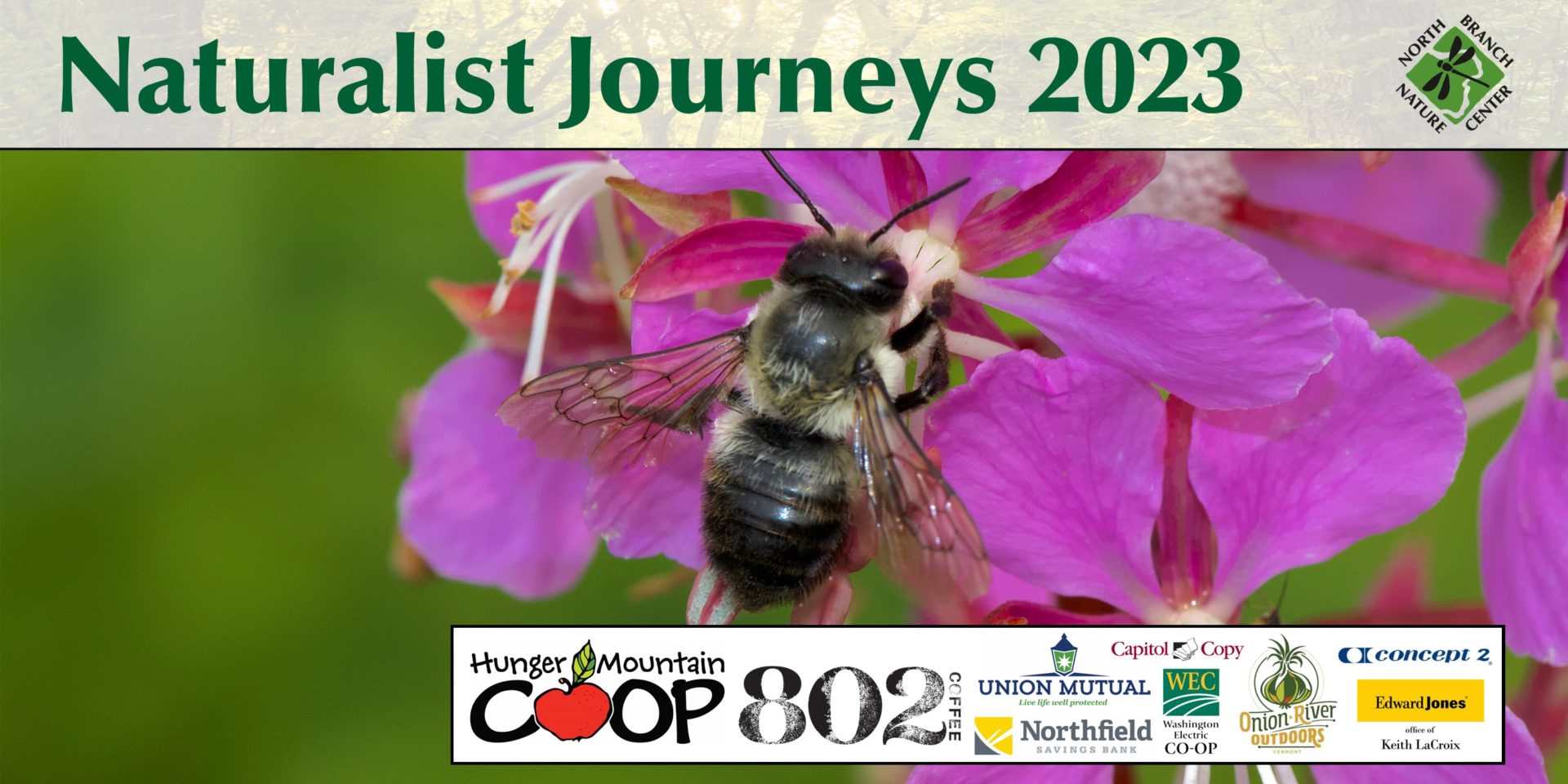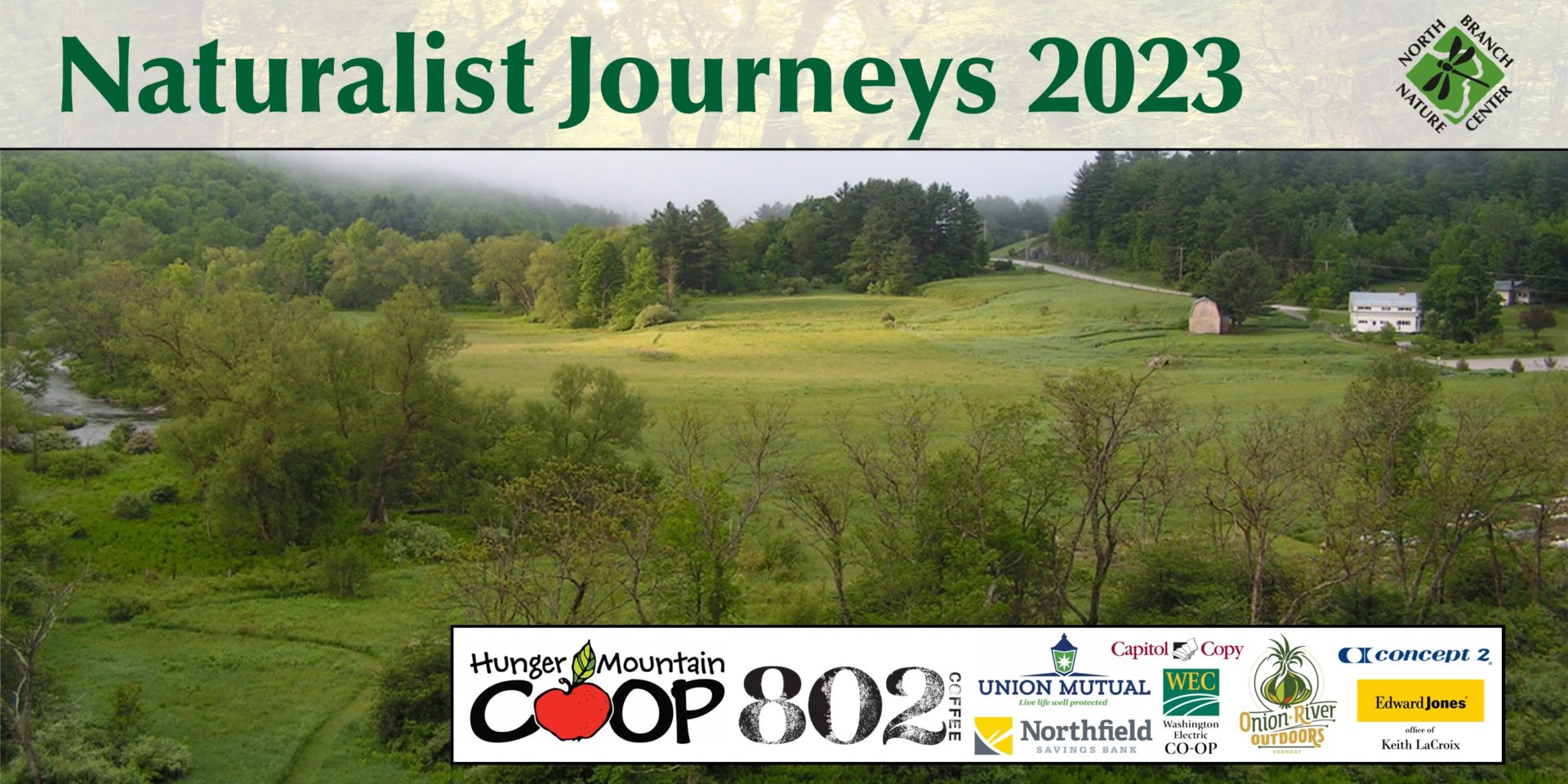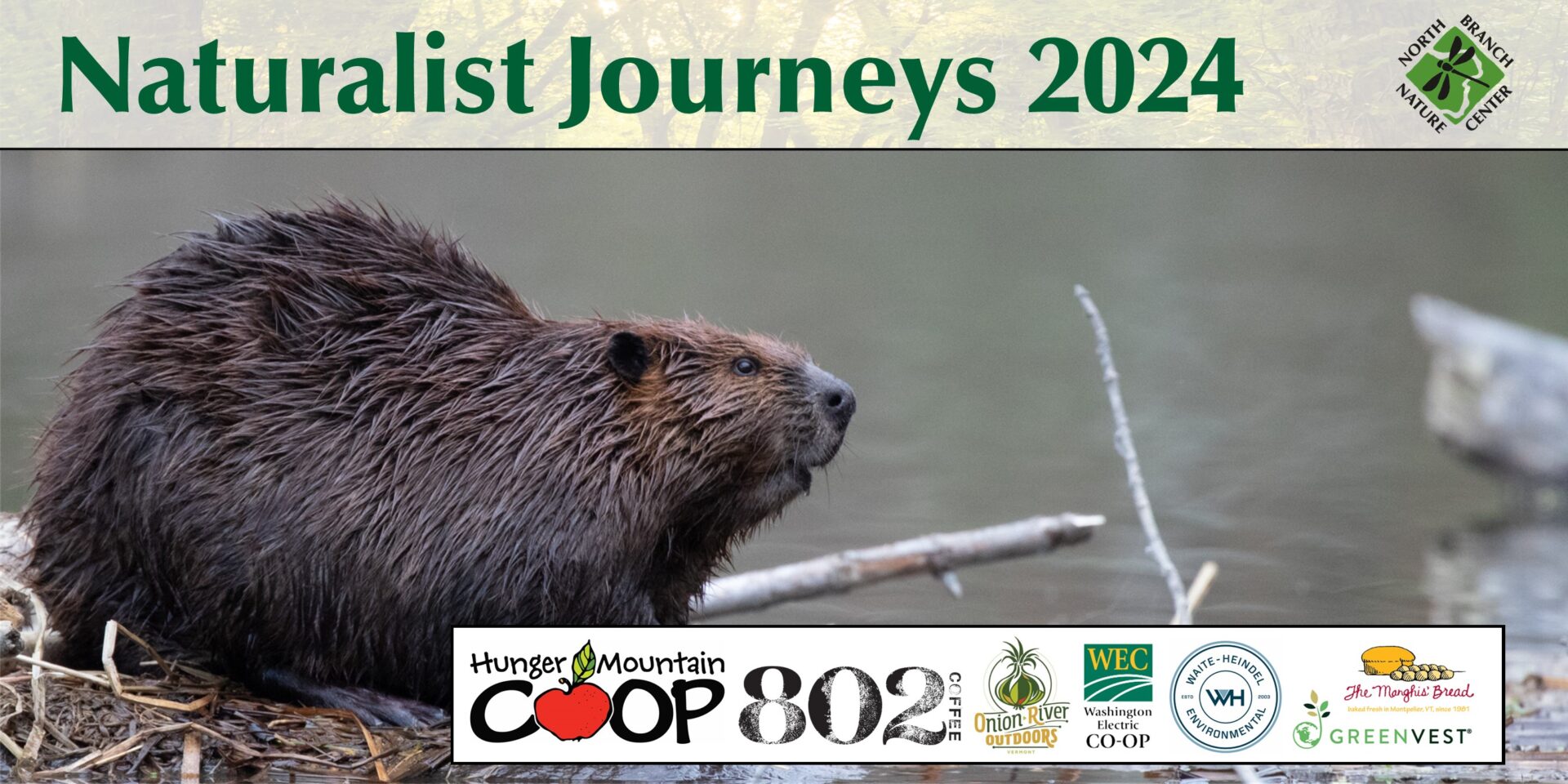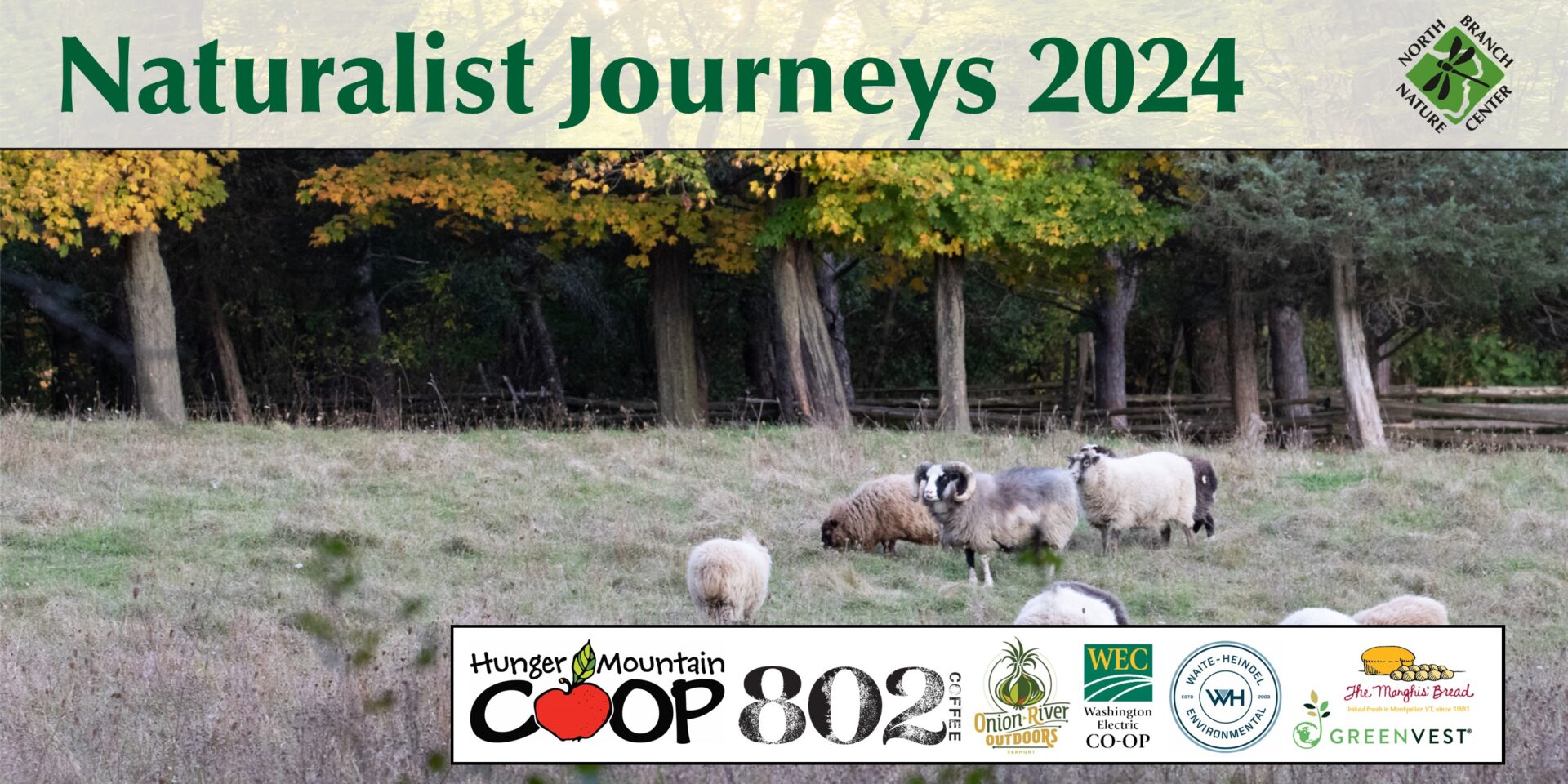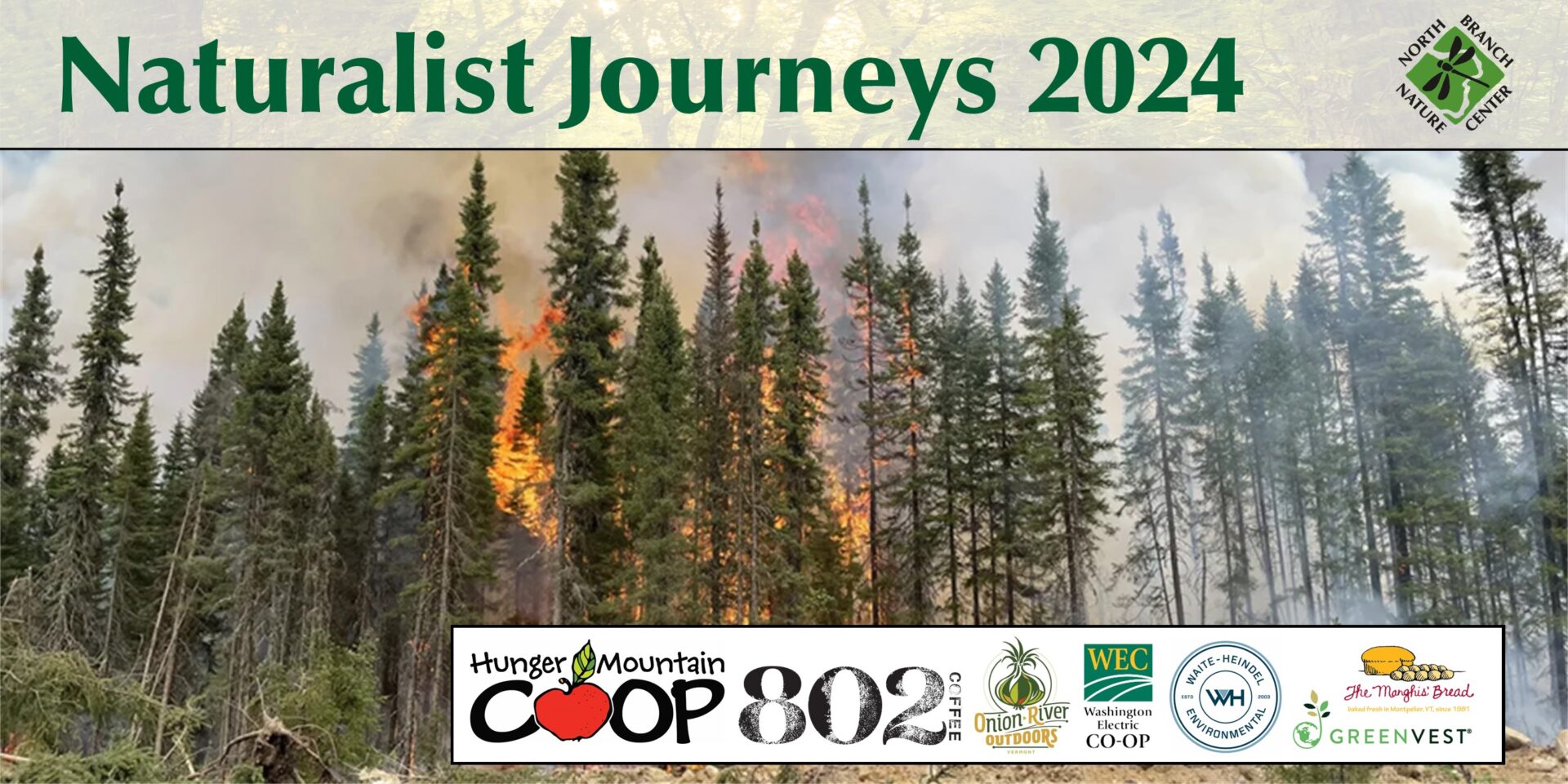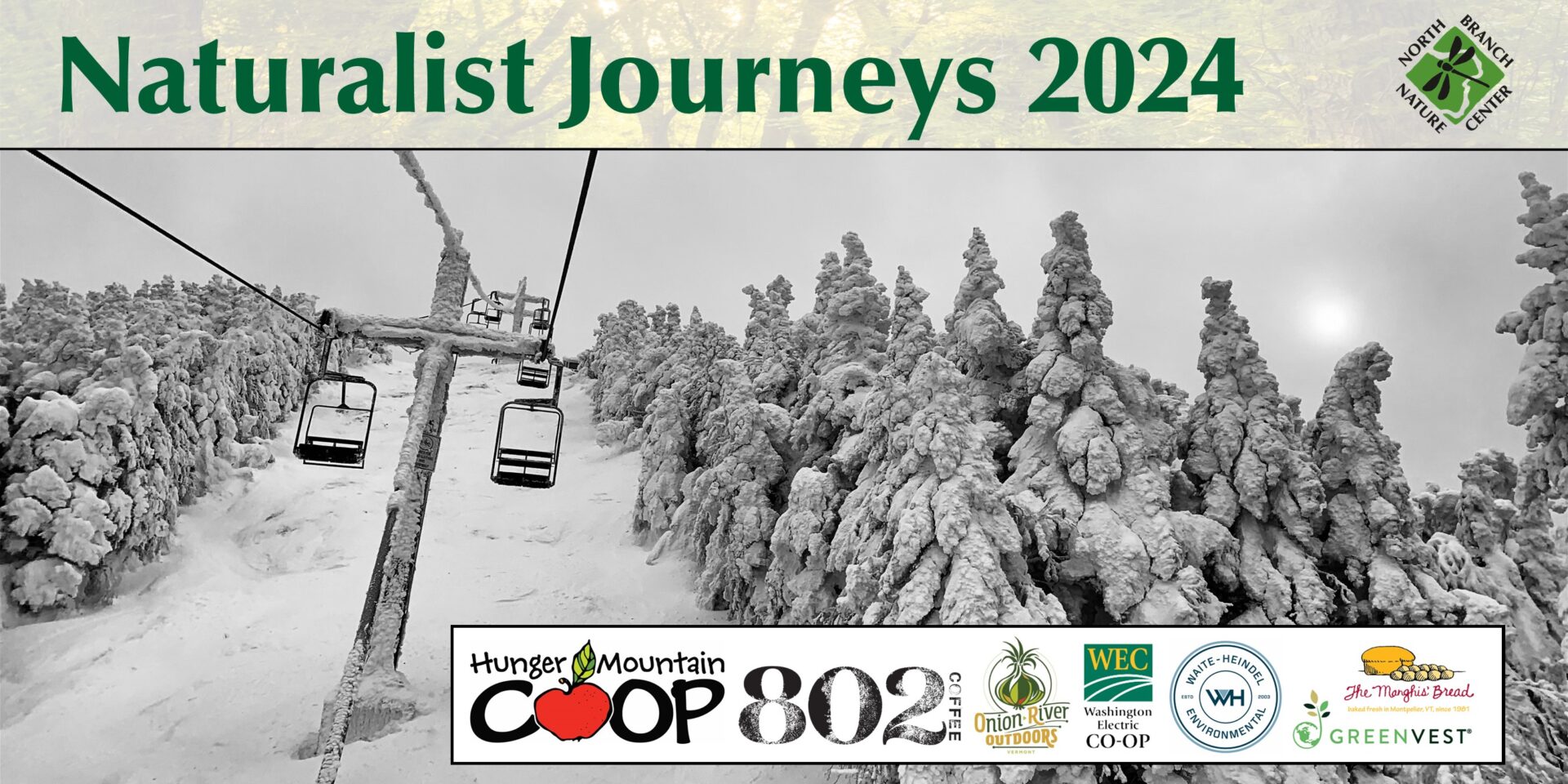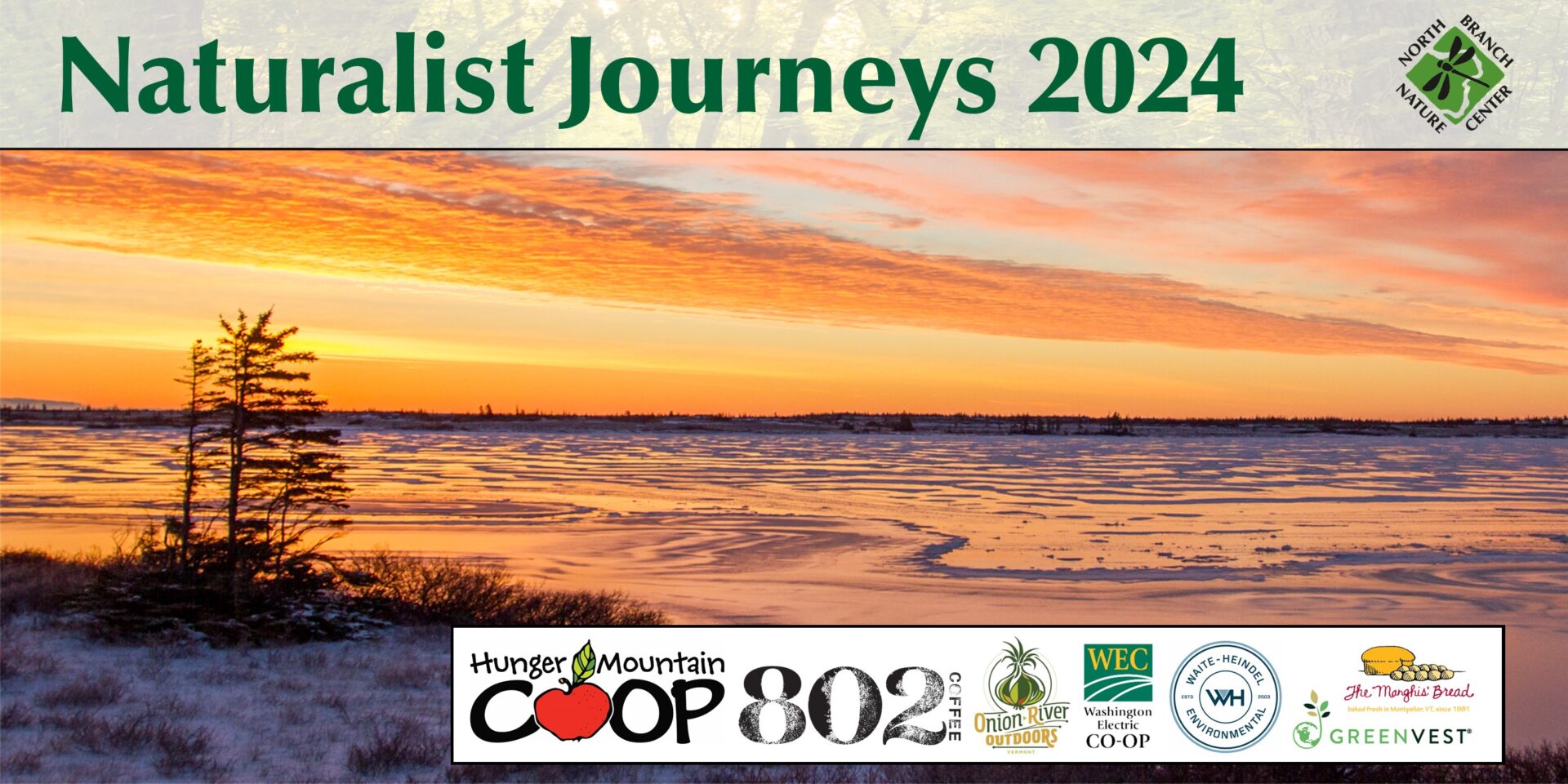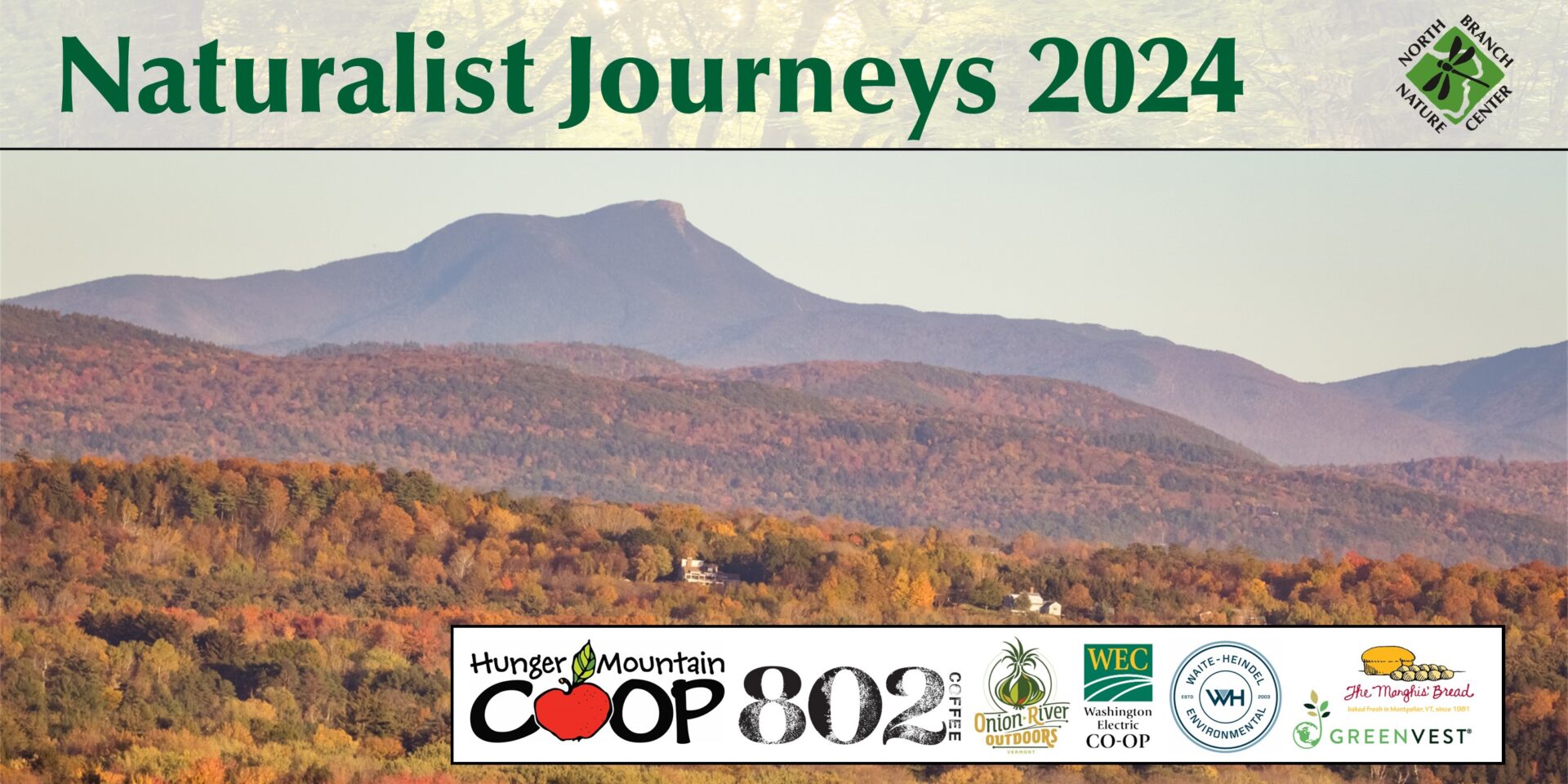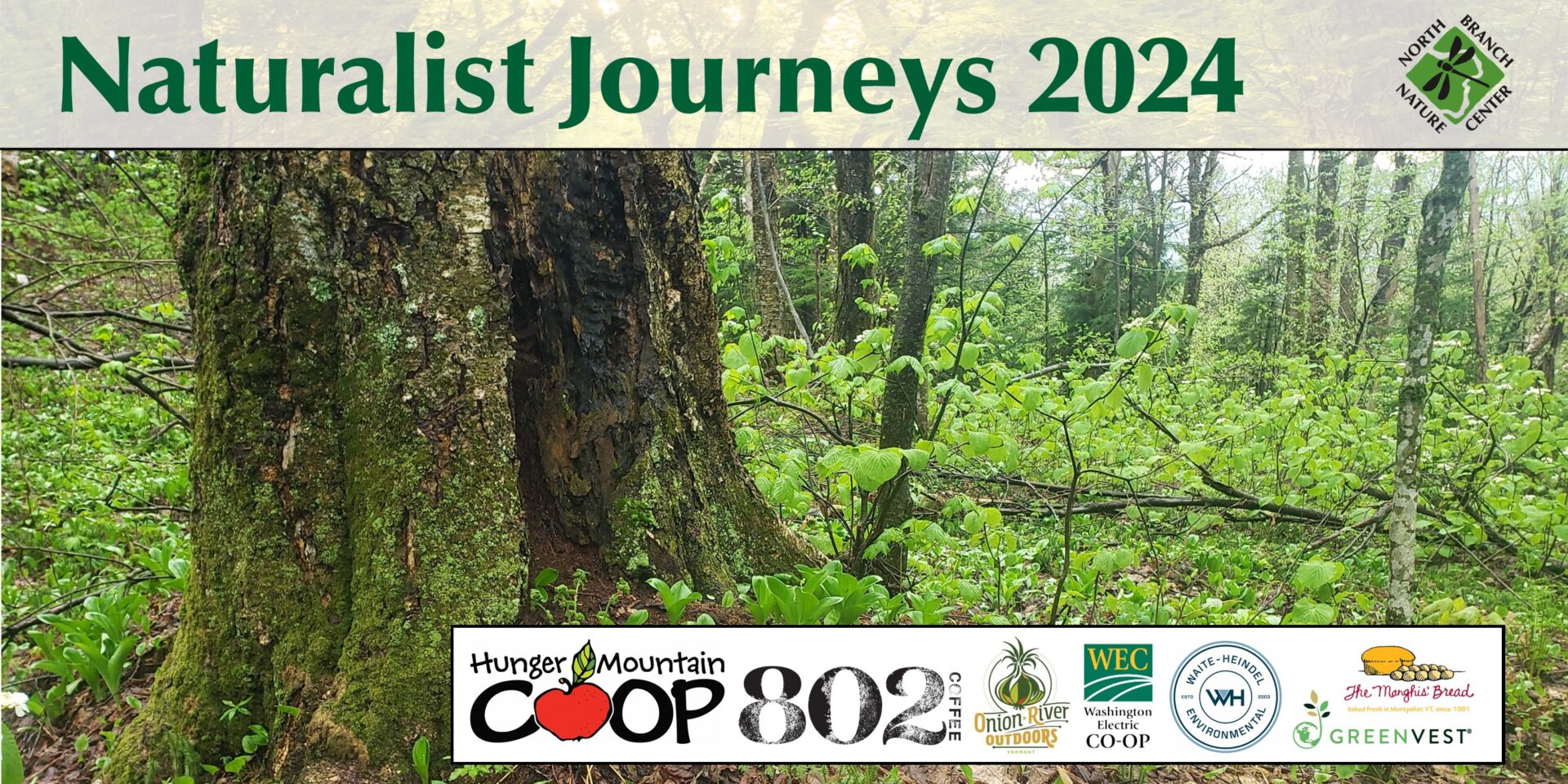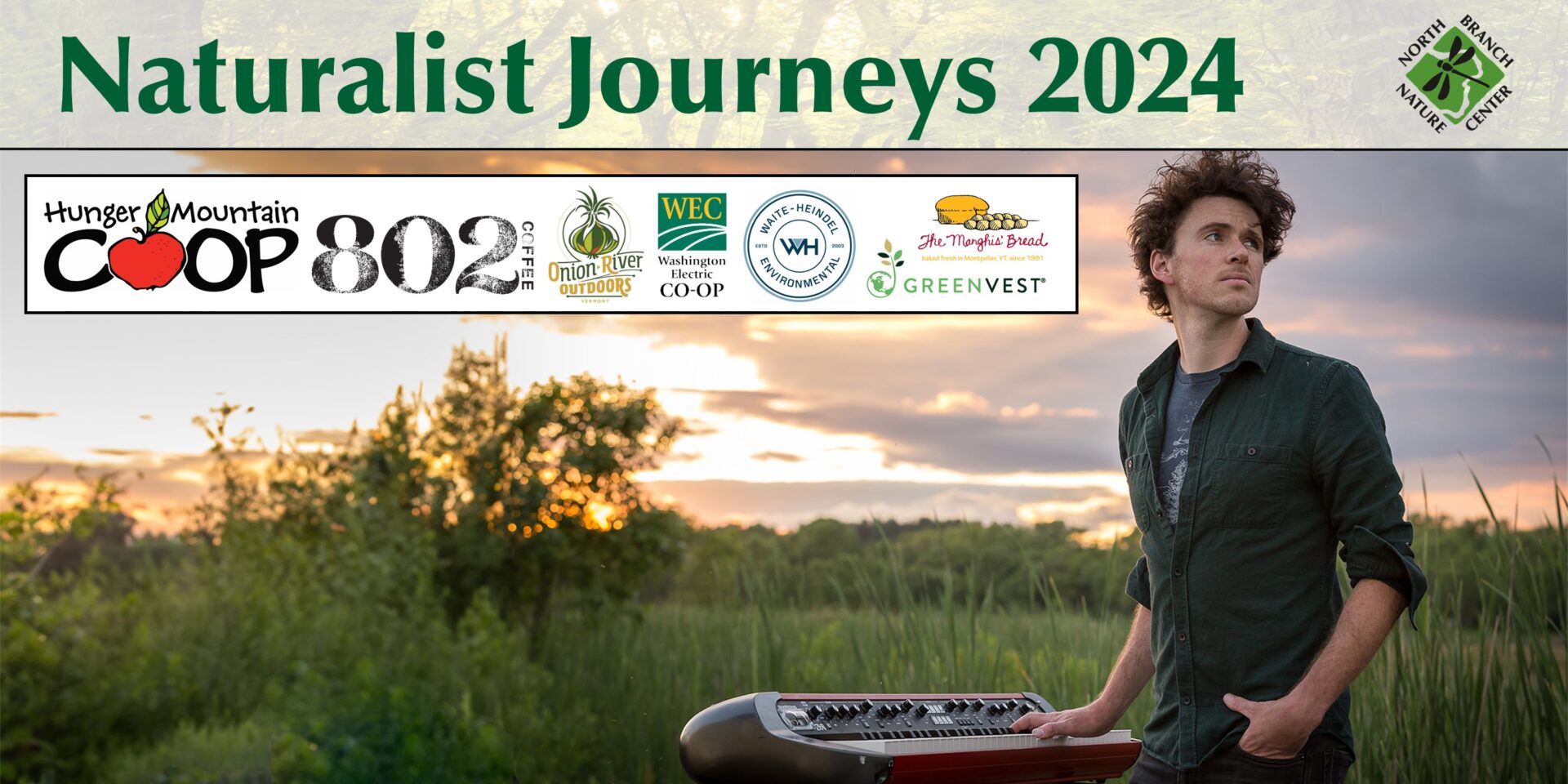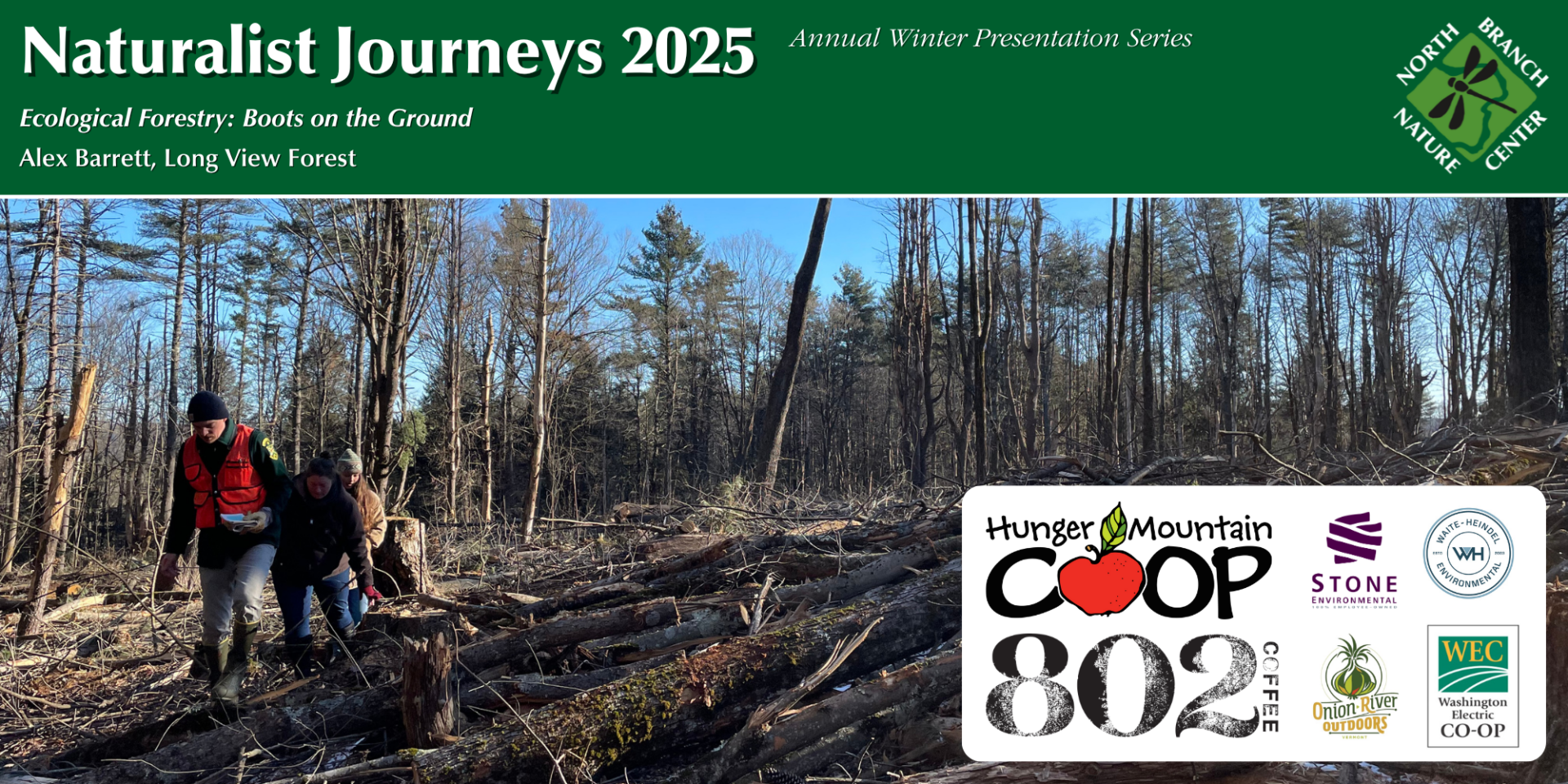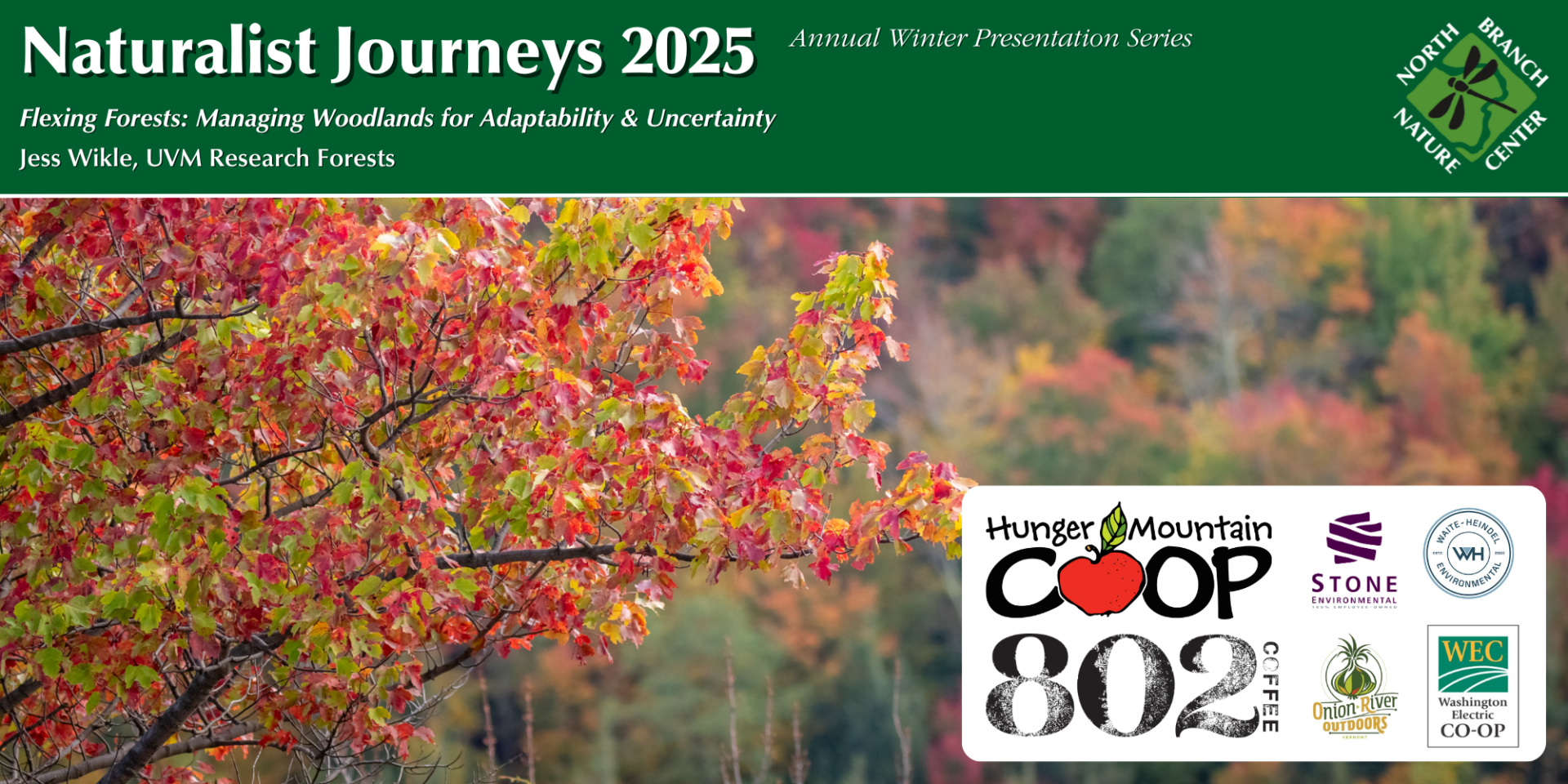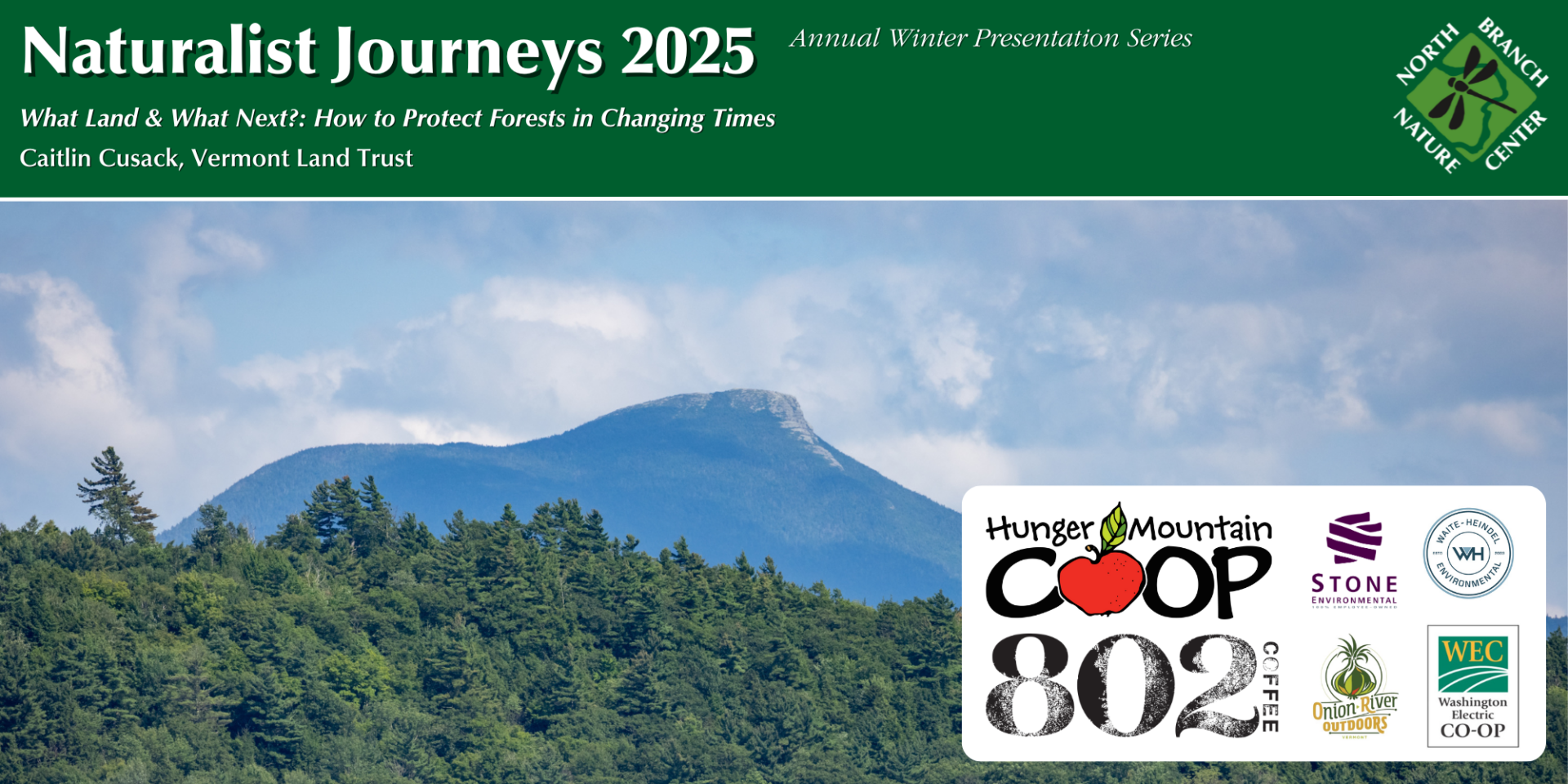Attracting Bees and Beneficial Insects with Native Plants by Heather Holm – Naturalist Journeys Online Presentation Series
North Branch Nature Center 713 Elm Street, Montpelier, VermontMost insects have a positive impact in our landscapes. Native plants can be selected to attract specific bees and beneficial insects including predatory and parasitic wasps, beetles, flies, true bugs, and lacewings. Learn about the predator-prey relationships of these flower-visiting beneficial insects and how they help keep problem insect populations in balance. The life cycles, diversity, and nesting habitat of native bees will also be covered along with examples of native plants for different site conditions.
Alpine Habitats, Climate Change, and Rosy-Finches with Carl Brown – Naturalist Journeys Online Presentation Series
North Branch Nature Center 713 Elm Street, Montpelier, VermontAlpine ecosystems are rapidly changing in the face of climate change, with their avian occupants relatively understudied. From cliff nesting rosy-finches, to tundra obligate pipits and generalist sparrows, these communities face the potential for massive change in a warming environment. In this presentation, Carl Brown will discuss habitat associations that lend to climate vulnerability, potential arctic parallels, and the adventures of nest searching on alpine cliffs in the Rocky Mountains.
Birdability: because birding is for everybody and every body! – Naturalist Journeys Online Presentation Series
North Branch Nature Center 713 Elm Street, Montpelier, VermontBirding is an activity that can bring so much joy and empowerment to everybody, but not everybody is able to go birding easily. Birdability is a brand new non-profit, based in the US but with a global reach. Through education, outreach and advocacy, Birdability works to ensure the birding community and the outdoors are welcoming, inclusive, safe and accessible for everybody. We focus on people with mobility challenges, blindness or low vision, chronic illness, intellectual or developmental disabilities, mental illness, and those who are neurodivergent, deaf or hard of hearing or who have other health concerns. In addition to current birders, we strive to introduce birding to people with disabilities and other health concerns who are not yet birders so they too can experience the joys of birding.
Bird Brother: An Evening with Master Falconer Rodney Stotts (Virtual Presentation)
Online(Live via ZOOM) | Rodney Stotts is a master falconer from Southeast Washington D.C. One of the nation's few Black falconers, Rodney creates interactive and educational programming, to share the healing power of nature for anyone in need through his organization, Rodney's Raptors.
Science Communication Through Art with Jill Pelto (Virtual Presentation)
Online(Live via Zoom) | Jill Pelto is an artist and scientist whose work focuses on communicating human-environment connections. She incorporates scientific data directly into her paintings — from local trends to global changes. Jill creates artwork that engages broad audiences with climate change data in ways that are emotionally relevant.
Indigenous Plant Uses in Southern Greenland with Dr. Simone Whitecloud (Virtual Presentation)
Online(Live via Zoom) | Dr. Whitecloud will discuss the role of plant knowledge among the Inuit of Southern Greenland. She and her collaborator, Dr. Lenore Grenoble, documented more than 50 taxa and 205 plant uses in seven broad categories: medicine, beverages, food, herbs and spices, fuel, ritual, and material culture, the last category consisting primarily of decorative uses.
On Safari: Wildlife Adventures Around the World with Sean Beckett (IN-PERSON)
North Branch Nature Center 713 Elm Street, Montpelier, Vermont(IN PERSON) | In the true tradition of Naturalist Journeys, join Sean Beckett on a photographic odyssey around the globe, from the rainforests of Panama to the Savannas of Africa to the mountains of Yellowstone.
The Spread of Deer Ticks in North America with Lucas Price (IN-PERSON)
North Branch Nature Center 713 Elm Street, Montpelier, Vermont(IN PERSON) | Black-legged ticks are the primary tick species responsible for spreading Borrelia burgdorferi, the bacterium that causes Lyme disease, in the northeastern United States. This talk will provide an overview of the tick life cycle, how ticks obtain and spread pathogens, and what habitats they live in.
The Wolves and Moose of Isle Royale with Ky and Lisa Koitzsch (IN-PERSON)
North Branch Nature Center 713 Elm Street, Montpelier, Vermont(IN PERSON) | Join wildlife biologists Ky and Lisa Koitzsch as they share their experiences studying wolves and moose in Isle Royale National Park. Isle Royale is a remote island wilderness located 15 miles from the shores of Ontario and Minnesota in the frigid waters of Lake Superior.
Vermont’s Wild Bees: past, present, and future with Spencer Hardy (IN-PERSON)
North Branch Nature Center 713 Elm Street, Montpelier, Vermont(IN PERSON) | The new State of Vermont's Bees provides the first detailed look at the conservation status and needs of these important pollinators. Included in this presentation will be advice and suggestions for improving the habitat in your community, through both consumer decisions and land management.
North Branch Nature Center’s History on the Land with Samantha Ford (IN-PERSON)
North Branch Nature Center 713 Elm Street, Montpelier, Vermont(IN PERSON) | Uncover the history of the historic farmhouse and farm that North Branch Nature Center calls home. Learn how to read the landscape to reveal history hidden in plain sight. Peel back the layers of time with landscape historian Samantha Ford of Turn Stone Research to learn how past generations have shaped the land at the NBNC property.
Dam It: Partnering with Beavers to Heal the Planet with Ben Goldfarb (VIRTUAL)
Online(VIRTUAL) | Author Ben Goldfarb will discuss the history of this world-changing species; how beavers can help us fight drought, flooding, wildfire, and climate change; and how we can coexist with this challenging but vital rodent.
Wool Rugs, Grazing Sheep, and Climate Change: What’s the Connection? with Kimberly Hagen (IN-PERSON)
North Branch Nature Center 713 Elm Street, Montpelier, Vermont(IN-PERSON) | What does a wool rug have to do with climate change? A lot!
Under the Smoke: Boreal Forest Wildfire, Ecology, and Culture in Northern Quebec with Naomi Heindel (IN-PERSON)
North Branch Nature Center 713 Elm Street, Montpelier, Vermont(IN-PERSON) | Visit the boreal forest, learn some fire ecology, take a look at the wildfires' impacts on the James Bay Cree, and explore the complicated mix of climate change and logging at play in these forests.
Coming Back Home: Turning Towards Uncertainty, Wonder and Connection with Amy Butler (IN-PERSON)
North Branch Nature Center 713 Elm Street, Montpelier, Vermont(IN-PERSON) | In a time of compounded stress and anxiety about our current climate crisis, nature is our guide to restoring a healthy and balanced dynamic between ourselves, one another and the earth.
Stories from the Poles: Science and Adventure in Greenland and Antarctica with Ruth Heindel (VIRTUAL)
Online(VIRTUAL) | Dr. Ruth Heindel will share stories about her experience conducting fieldwork along the margin of the Greenland Ice Sheet and in the McMurdo Dry Valleys of Antarctica, two locations that are shaped by their extreme climate.
POSTPONED TO 2/20: Getting to 30 by 30: The Science and Stories of Conserving Land with Gus Goodwin (IN PERSON)
North Branch Nature Center 713 Elm Street, Montpelier, Vermont(IN-PERSON) | The science and strategy that guides The Nature Conservancy to pursue the places, projects, and partnerships that make Vermont such a remarkable state.
Getting to 30 by 30: The Science and Stories of Conserving Land with Gus Goodwin (IN PERSON)
North Branch Nature Center 713 Elm Street, Montpelier, Vermont(IN-PERSON) | The science and strategy that guides The Nature Conservancy to pursue the places, projects, and partnerships that make Vermont such a remarkable state.
Understanding Forest Carbon: How Forests Mitigate Climate Change with Ali Kosiba (IN-PERSON)
North Branch Nature Center 713 Elm Street, Montpelier, Vermont(IN-PERSON) | Learn all about forests and the carbon they sequester and store. Dr. Kosiba will showcase the complex forest carbon cycle, from living trees down to the soil.
Ben Cosgrove: Music of the Environment SOLD OUT
North Branch Nature Center 713 Elm Street, Montpelier, Vermont(IN-PERSON) | Ben Cosgrove is a traveling composer-performer whose music explores themes of landscape, place, and environment.
How to Love a Forest: Discussion and Book Launch with Ethan Tapper
North Branch Nature Center 713 Elm Street, Montpelier, VermontIn How to Love a Forest, forester and author Ethan Tapper helps us reimagine what forests are and what it means to care for them. This evening will feature readings, presentation, and an interview with NBNC staff.
Ecological Forestry: Boots on the Ground with Alex Barrett
North Branch Nature Center 713 Elm Street, Montpelier, VermontAs we ask more and more of our woods, the field of ecological forestry has emerged to put forest ecosystem health first—without losing sight of other economic and resource goals. Consulting Forester Alex Barrett of Long View Forest will provide a practitioner’s perspective on how ecological forestry works, and how it is changing how we think about managing forests—from landowner perceptions, to economics, to our society’s reliance on the products and services that forests provide.
Flexing Forests: Managing Woodlands for Adaptability and Uncertainty with Jess Wikle
North Branch Nature Center 713 Elm Street, Montpelier, VermontNorthern forests face a number of new threats, from severe weather patterns driven by climate change, to invasive insects and pathogens. But novel forest management techniques can prepare forests to be more resilient in the face of an uncertain future.
Wilderness Works Too: The Promise of Passive Rewilding with Shelby Perry
North Branch Nature Center 713 Elm Street, Montpelier, VermontWhat happens when your management objective is to protect the autonomy of nature? Passive management, also called passive rewilding, is the practice of standing back and letting nature direct the ebb and flow of life. Learn about the value of passive rewilding through both human and non-human lenses, grapple with the incongruity of human and forest timelines, and consider the merits of building future old forests, even if we might not live to see them ourselves.
Forest Management is for the Birds with Steve Hagenbuch
North Branch Nature Center 713 Elm Street, Montpelier, VermontHow can we help birds find the habitat conditions they need to nest successfully? Learn about Audubon Vermont’s efforts to promote forest stewardship that meets the needs of birds and people. We’ll explore the types of forest conditions that support high bird diversity, while keeping in mind all of the other important values we hold for our forests.
What Land & What Next? How to Protect Forests in Changing Times with Caitlin Cusack
North Branch Nature Center 713 Elm Street, Montpelier, VermontThe combined threats of fragmentation, habitat loss, climate change, and biodiversity collapse require us to rethink how we conserve Vermont’s forests. How do we choose which lands to conserve, and then how do we steward them responsibly?
